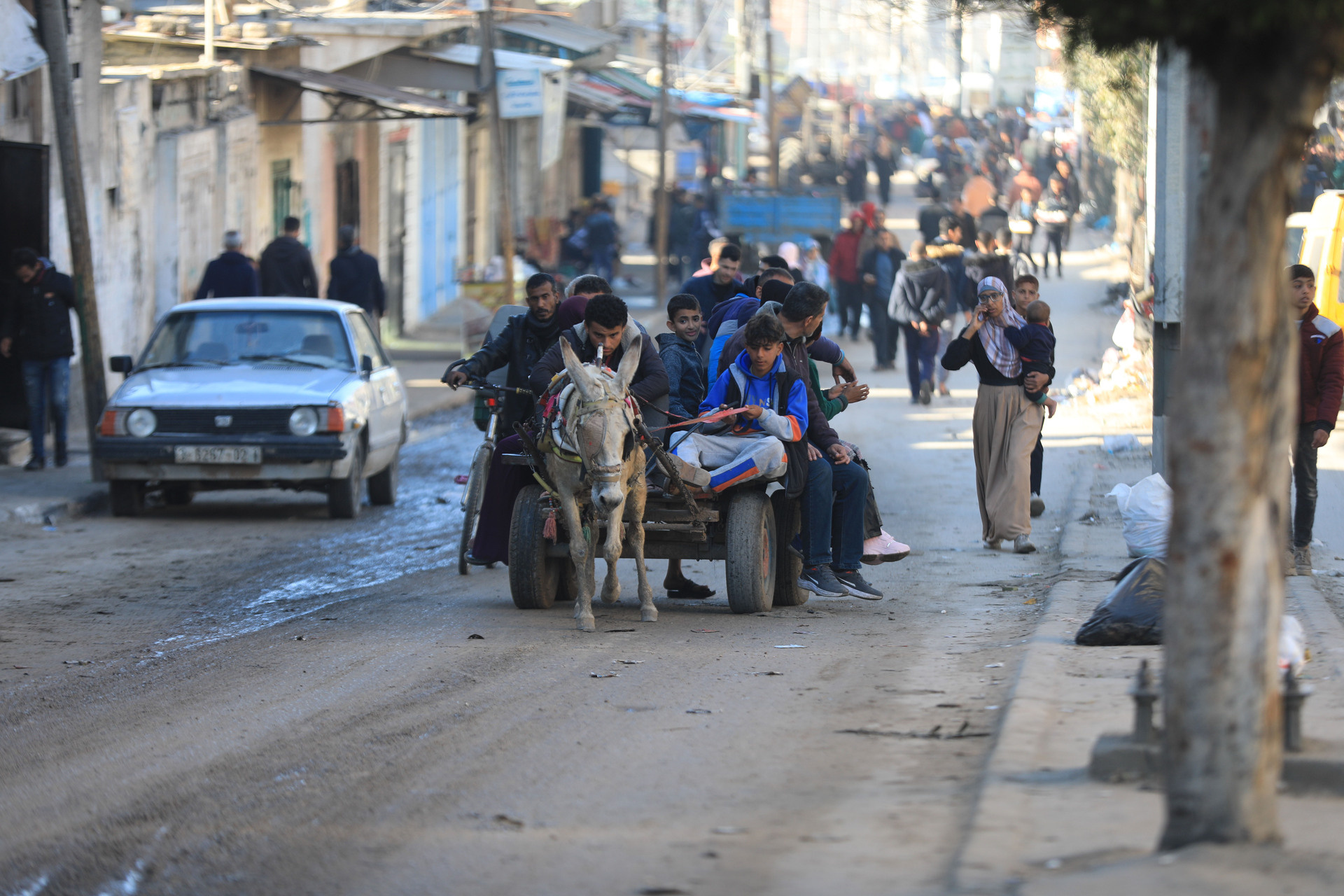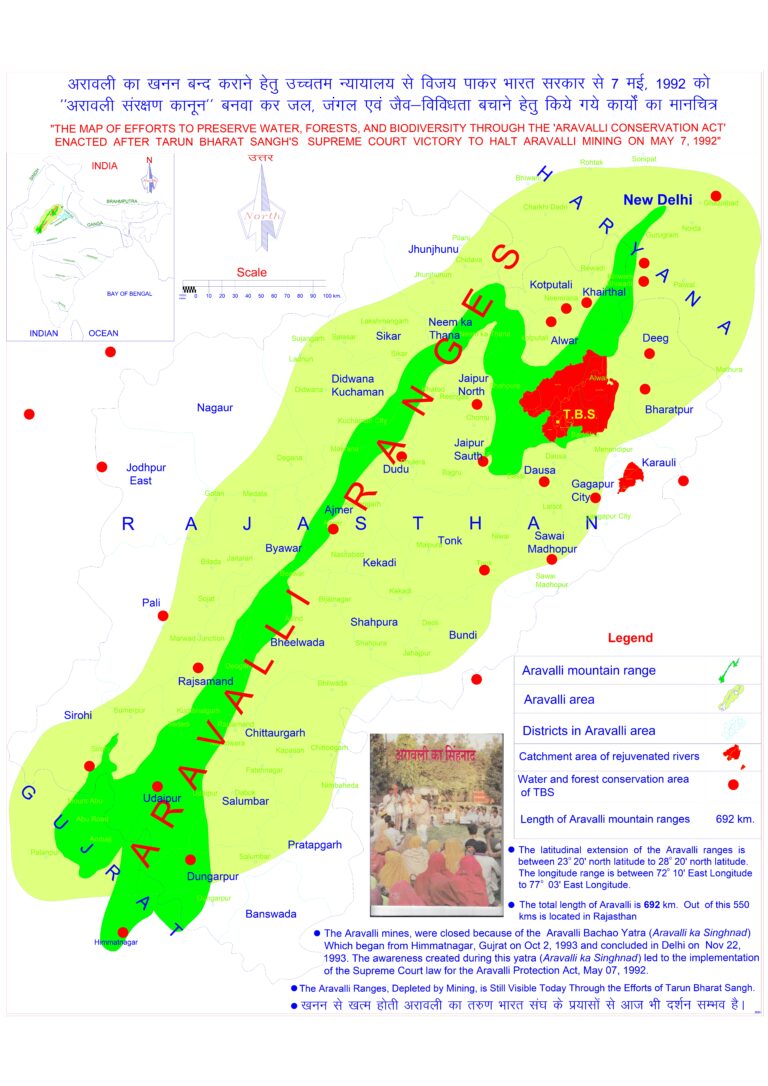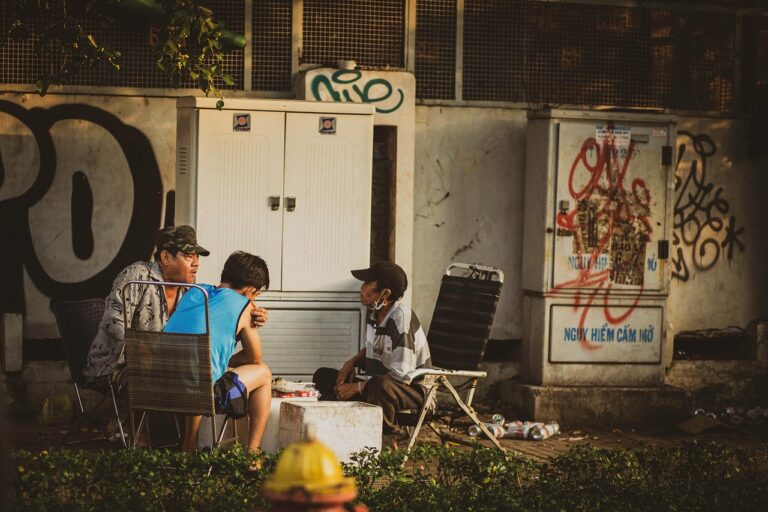
The displaced Palestinians seeking safety in Rafah southern Gaza. Half of the Gaza population is sheltering there. Photo credit WHO
Washington/Tel Aviv: With Israel mulling a major military strike in Rafah in the southern Gaza Strip, which houses about 1.4 million displaced civilians, the United States says it is “concerned”.
While Israeli Prime Minister Benjamin Netanyahu said during the weekend that Israeli forces would be entering Rafah soon and that Israel would be moving the people out of the area, the United States said “Israel cannot and should not proceed with a full-scale military operation in Rafah without a credible and implementable plan for ensuring the safety and support for more than the 1 million people sheltering there”.
“The Government of Israel has said that they will implement a humanitarian assistance plan. They’ve said that publicly, but we have not seen anything yet,” a US State Department spokesperson said in Washington.
Rafah is a primary entry point for humanitarian assistance in Gaza from Egypt and Israel. It is also a conduit for the departure of foreign nationals. One more reason for the US worries is that the refugees, who first went from Gaza City to Khan Younis and then to Rafah, now have nowhere else to go as Gaza’s other major cities have largely been destroyed.
Already a military operation by the Israeli forces has been continuing at the Al-Shifa Hospital in Gaza City since yesterday and so far Israel claimed to have eliminated over 50 Hamas “terrorists” there including Faiq Mabhouh, head of the Operations Directorate of Hamas’ Internal Security, who was hiding in a compound at the Al-Shifa Hospital.
However, the differences between US President Joe Biden and his administration and Prime Minister Benjamin Netanyahu and his government have perceptibly gotten bigger in the past couple of months.
“Israel has not presented us or the world with a plan for how or where they would safely move those civilians, let alone feed and house them and ensure access to basic things like sanitation,” Jake Sullivan, US National Security Advisor, said in Washington.
“The President doesn’t want to see a military operation go into Rafah. He’s been very clear about that. He wants to make sure that innocent lives are protected,” White House Press Secretary Karine Jean-Pierre stated in Washington.
Under the developing circumstances, US President Joe Biden called up Netanyahu for the first time in 32 days on March 18, 2024, and asked the Prime Minister to send a senior interagency team composed of military, intelligence, and humanitarian officials to Washington in the coming days to hear US concerns about Israel’s current Rafah planning and to lay out an alternative approach that would target key Hamas elements in Rafah and secure the Egypt-Gaza border without a major ground invasion.
However, Sullivan conceded that both leaders had a “different perspective on this operation in Rafah. But they went into some detail on that and had the opportunity to elaborate each of their respective views in a “full-throated way, in the way they always do when President Biden and Prime Minister Netanyahu talk”.
The US expects Israel not to proceed with a major military operation in Rafah until the conversation in Washington.
“Our position is that Hamas should not be allowed a safe haven in Rafah or anywhere else. But a major ground operation there would be a mistake. It would lead to more innocent civilian deaths, worsen the already dire humanitarian crisis, deepen the anarchy in Gaza, and further isolate Israel internationally. Most importantly, the key goals Israel wants to achieve in Rafah can be done by other means,” Sullivan said.
Netanyahu was quoted by Israel’s foreign ministry, saying “We discussed the latest developments in the war, including Israel’s commitment to achieving all of the war’s goals: Eliminating Hamas, freeing all of our hostages and ensuring that Gaza never gain constitutes a threat to Israel – while providing the necessary humanitarian aid that will assist in achieving these goals.”
However, just a day before Biden’s phone to him, Netanyahu had said in a government meeting that “No international pressure will stop” Israel from realising all of the goals of the war. In an interview to CNN too, he claimed he had the support of the majority of the Israeli people for his policies, including going into Rafah.
Significantly, both leaders agreed to have their teams meet soon in Washington to exchange views and discuss alternative approaches that would target key elements of Hamas and secure the Egypt-Gaza border without a major ground operation in Rafah.
“Obviously, he [Netanyahu] has his own point of view on a Rafah operation, but he agreed that he would send a team to Washington to have this discussion and have this engagement. And we look forward to those discussions,” Sullivan said.
Strategically speaking, another point of concern is that Rafah is on the border with Egypt, and Cairo has voiced its deep alarm over a major military operation there and has even raised questions about its future relationship with Israel as a result of any impending military operation. Concerned over the situation, the US State Department today announced that Secretary of State Antony J. Blinken would be visiting Egypt and Saudi Arabia to discuss “efforts to reach an immediate ceasefire agreement that secures the release of all remaining hostages, intensified international efforts to increase humanitarian assistance to Gaza, and coordination on post-conflict planning for Gaza, including ensuring Hamas can no longer govern or repeat the attacks of October 7”. The itinerary suggests that unlike Blinken’s previous trips to the Middle East amid the ongoing war in Gaza, this trip is not clubbed with any visit to Israel.
Incidentally, Biden has affirmed the need to defeat Hamas in Gaza while also protecting the civilian population and facilitating the safe and unhindered delivery of assistance throughout Gaza. The US wants Israel to open as many access points for humanitarian assistance in Gaza as possible and keep them open to make sure that things are flowing sustainably: increase the scanning capacity, the inspection capacity, particularly at Kerem Shalom, where more can be done to get more aid in more quickly; easing unnecessary restrictions on key products; having greater clarity and predictability on what can get in and what can’t.
And here lies the paradox – the United States remains the leading supplier of weapons to Israel while it also leads an international rescue effort to get humanitarian aid into Gaza despite the obstacles from members of the cabinet in Israel, which have delayed the opening of more land access.
Recently, when asked about this “incompatible” US policy, Blinken explained that the US focus was to make sure that Israel can effectively defend itself, and that October 7 never happens again; and that civilians are protected, and humanitarian assistance gets to those who need it while Israel takes the steps necessary to defend itself to ensure that October 7 doesn’t happen again.
Blinken claimed these two objectives were not in conflict. According to him, the question was whether Israel, on the one hand, could effectively deal with its security needs in defending the country; and at the same time maximise every possible effort to ensure that civilians were not harmed and that assistance got to those who needed it. “And as I’ve said for some time, we see a gap between the intent and the result that we’re determined – every single day – to close. We want to see the violence end. We want to see this get to a point where civilians are fully protected, and people get what they need to get by and ultimately to rebuild their lives. The best path forward right now would be, of course, getting an agreement on hostages. That’s what we’re working on intensely every single day,” he said.
– global bihari bureau





